Institute of Exercise Physiology and Rehabilitation Science
UCF School of Kinesiology and Rehabilitation Sciences
Overview
The Institute of Exercise Physiology and Rehabilitation Science is integral to the research enterprise of the School of Kinesiology and Rehabilitation Sciences. The institute supports mechanistic and translational research by faculty members and students in the school’s Division of Kinesiology, Division of Physical Therapy and Athletic Training Program. The institute also partners with colleagues from the College of Health Professions and Sciences and Academic Health Sciences Center to contribute to the research mission of the university. With its current resources and faculty expertise, the institute has a broad capacity to advance the fields of exercise and rehabilitation sciences.
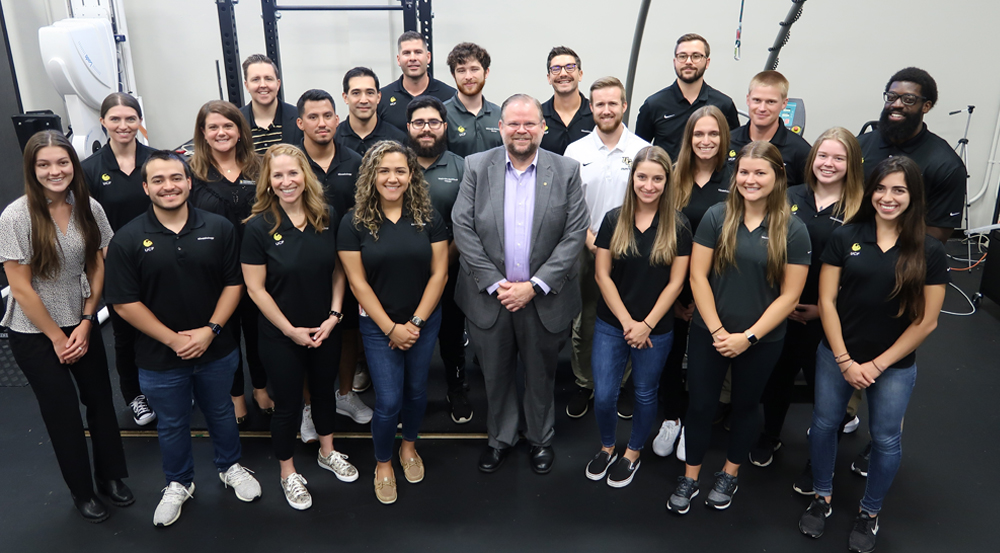
National Conferences
Our institute is heavily engaged in a variety of national organizations. Each year, you can catch us presenting our latest research at conferences for the American College of Sports Medicine, National Strength and Conditioning Association, National Athletic Trainers Association, American Physical Therapy Association, and the International Society for Sports Nutrition, among many others.

Mission Statement
Our mission is to foster, conduct, and disseminate high-impact research that advances the fields of exercise physiology and rehabilitation science.
Vision Statement
Our vision is to become an internationally recognized and trusted resource for advancing research in the fields of exercise physiology and rehabilitation science.
Core Values
- We are committed to mentorship.
Future scientific discoveries will depend on the success of the next generation of scientists. We believe that we have a responsibility to aid in the professional development of our students, trainees, and faculty. Our Principal Investigators work closely with students and trainees to provide guidance throughout the entire research process – from idea conception to dissemination. As educators first, we view research as a teaching tool. - We are committed to interdisciplinary collaboration.
Research advancements are faster and more fruitful when scientists work across disciplines instead of working separately. Our Principal Investigators are open to outside perspectives and recognize the importance of collaborating with scientists representing a broad range of research disciplines. - We are committed to openness, transparency, and ethical research practices.
Society should trust in the knowledge, expertise, and conduct of scientists. We recognize that building trust not only from other scientists, but from our community and the public, is critical to the long-term health of the scientific enterprise. Given this responsibility, we seek to gain public trust by approaching our research with integrity and engaging in open and transparent practices.
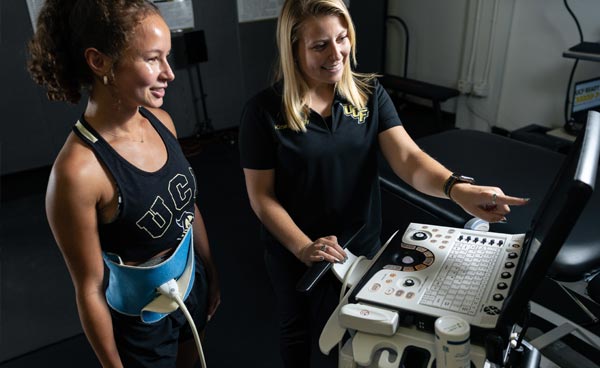
Data Collection
Although much of our laboratory work is dedicated to research studies, we welcome opportunities to validate findings or to collect data to assist teams or individuals.
Students frequently have an opportunity to expand their learning by actively participating in data collection ― a chance for them to apply what they learn through a textbook or lecture and take it to a new level.
IEPRS Annual Conference
The UCF Institute of Exercise Physiology and Rehabilitation Science hosts an annual conference that blends the fields of exercise and sport physiology with clinical rehabilitation. See the conference web page for more information on the upcoming event.
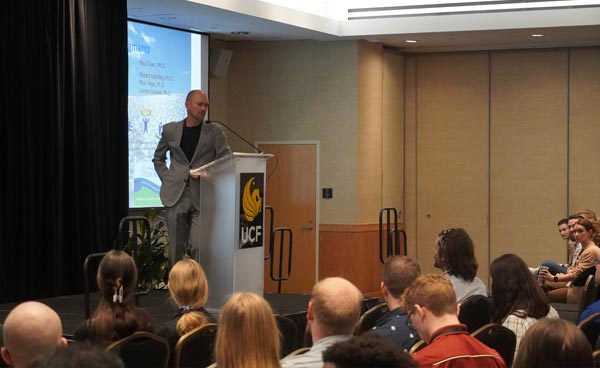
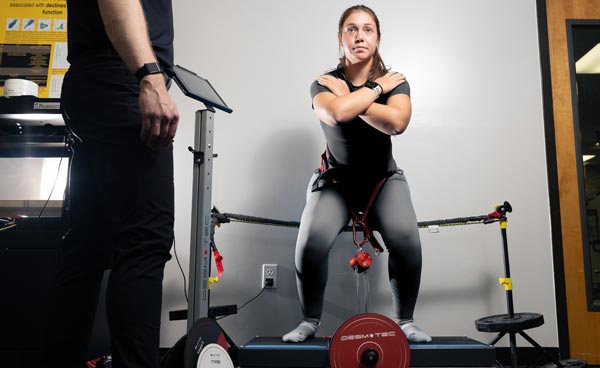
Research Seminar Series
Join the UCF Institute of Exercise Physiology and Rehabilitation Science at our monthly research seminar to learn from exercise and rehabilitation experts from around the world. The focus is on inspiring future paths of research by learning from researchers with various focuses on human movement. We welcome all who are interested, no matter if you are a student just getting your feet wet in research, or an esteemed researcher. These seminars are held online to facilitate the greatest involvement. We hope to “see” you there!
Laboratories
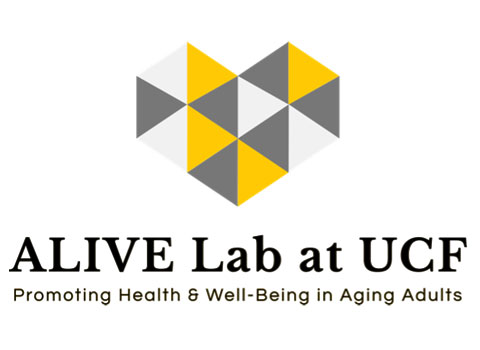
Aging & Longevity Initiatives for Vitality & Enrichment (ALIVE) Lab
Our mission is to optimize the successful aging for all individuals through vitality and enrichment initiatives that facilitate engagement and participation in purposeful activities. These initiatives include research, rehabilitation services, and educational opportunities for both the individual and the healthcare workforce.
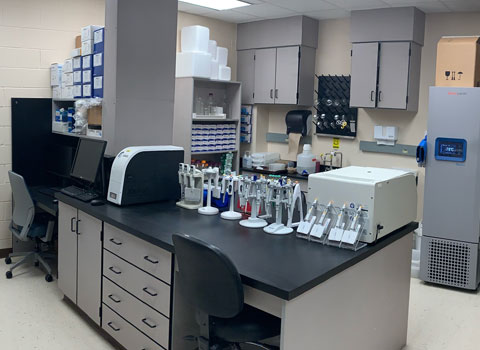
Cellular Exercise Physiology Lab
The primary focus of the Cellular Exercise Physiology Laboratory (CEPL) is to examine how the immune system, in conjunction inflammatory mediators that direct immune responses, influence recovery and adaptation following acute and chronic exercise interventions. The CEPL also examines how nutrition and dietary supplements impact these responses. Located in Biological Sciences building, the 400 sq. ft. CEPL houses state-of-the-art equipment used in the analysis of various blood constituents.
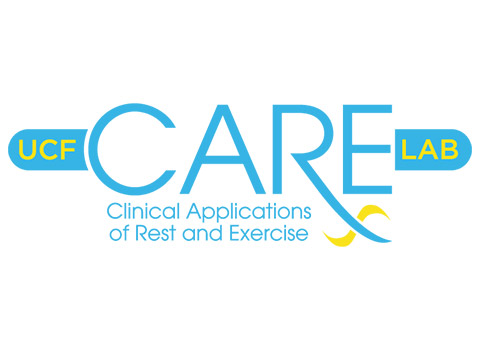
Clinical Applications of Rest and Exercise (CARE) Lab
The Clinical Applications for Rest and Exercise (CARE) Lab applies physiological, behavioral, and clinical approaches for the prevention and management of chronic diseases, through the integration of sleep and exercise physiology. Our team of certified Clinical Exercise Physiologists develop interventions that target modifiable lifestyle behaviors to reduce disease risk, manage symptoms, and improve quality of life across diverse populations. By bridging research and practice, the CARE Lab supports both clinical and community health through applied research, education, and collaboration.
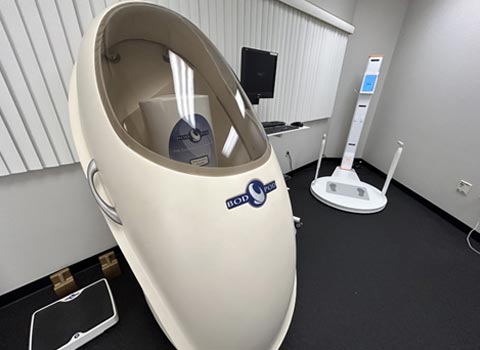
Exercise Physiology Intervention & Collaboration (EPIC) Lab
The Exercise Physiology Intervention & Collaboration (EPIC) Laboratory is a dedicated space utilized to administer exercise interventions of various modality and houses cutting edge technologies for the assessment of neurocognitive, neuromuscular and functional aspects of exercise performance. The facility is utilized for student and faculty led research projects and to teach lab sections that complement a number of kinesiology courses.
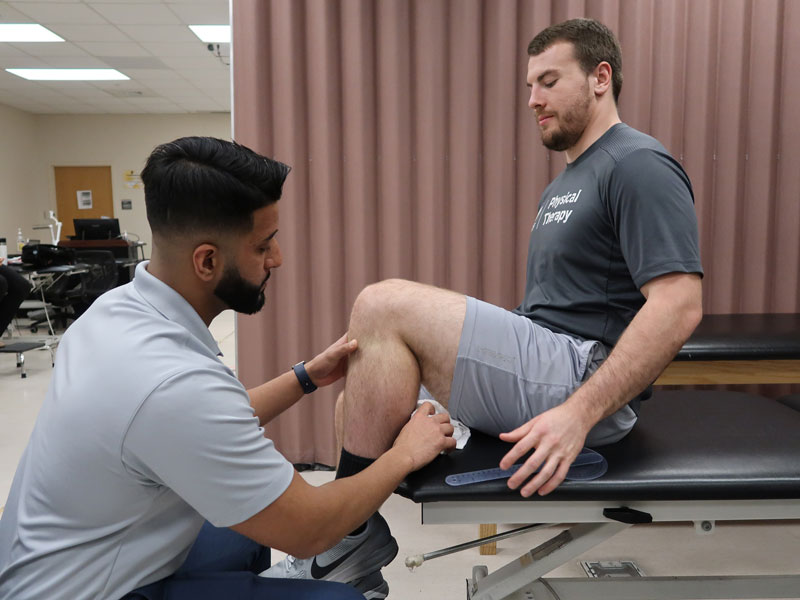
Spine & Mobility Laboratory
Through an interdisciplinary approach, the Spine & Mobility (SAM) Lab focuses on clinically-relevant research that improves clinical outcomes and identifies the most accurate and efficient approach to treating various neuromusculoskeletal conditions. The lab serves as a site for research investigations to answer clinical questions and evaluate examination and treatment for musculoskeletal conditions.
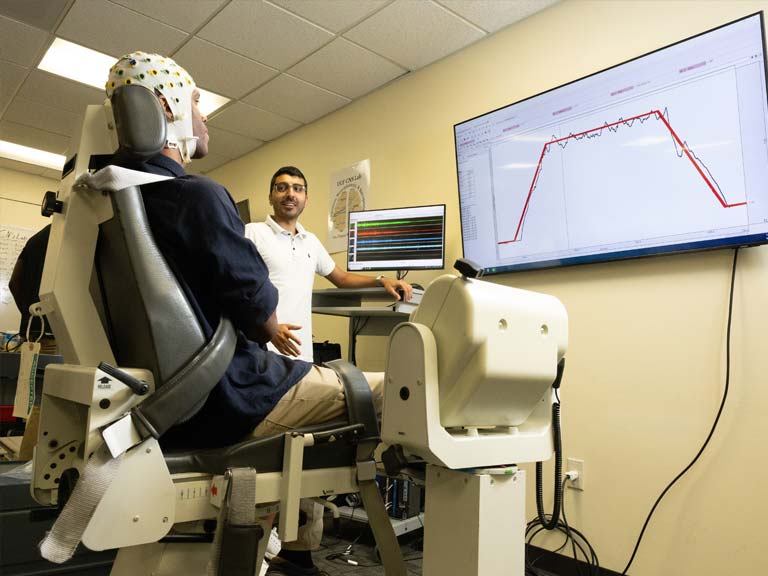
Cognition, Neuroplasticity, & Sarcopenia (CNS) Lab
The CNS Lab conducts high-quality interdisciplinary clinical research among diverse populations of all ages. We investigate the neurophysiological origins of lower extremity musculoskeletal injuries, with a focus on developing therapeutic interventions to enrich orthopedic rehabilitation. Our research also encompasses age-related physiological changes, disuse muscle atrophy, and the effects of resistance training on musculoskeletal health and recovery.
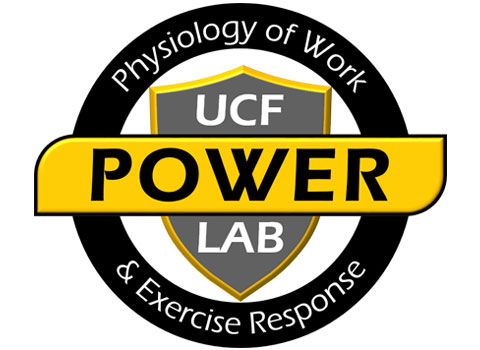
Physiology of Work & Exercise Response (POWER) Lab
The mission of the UCF POWER Laboratory is to assess the physiological response to exercise modalities and nutritional interventions aiming to enhance health, fitness and athletic performance. Through the application of exercise physiology and the analysis of human movement, we assist in addressing the contemporary questions of healthcare providers, fitness professionals, and sport coaches to aid in decision-making and strategic development. The POWER Laboratory has the capability to measure both physical performance and the metabolic response to field- and laboratory-based exercise protocols.
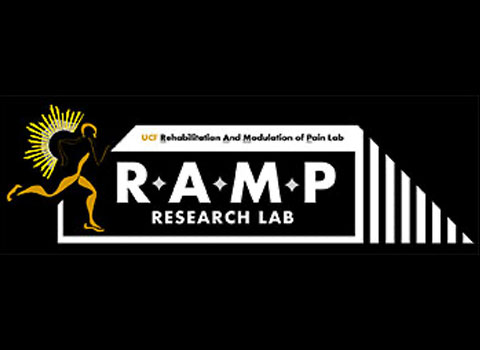
Rehabilitation and Modulation of Pain (RAMP) Lab
The UCF RAMP Lab aims to advance the rehabilitation of patients with musculoskeletal pain by researching how treatments provided by physical therapists reduce pain and biopsychosocial factors associated with this response. Chronic pain is highly prevalent and disabling, impacting one in five individuals in the United States.
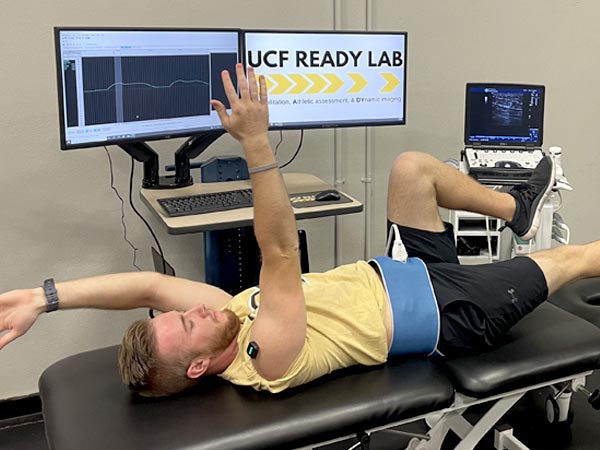
Rehabilitation, Athletic assessment, & Dynamic Imaging (READY) Lab
The READY Lab aims to advance neuromuscular assessment, musculoskeletal imaging, and rehabilitation methods for the lumbopelvic-hip complex, while improving the understanding and delivery of patient care for active individuals with chronic musculoskeletal injury. The READY Lab analyzes spatial, mechanical, and electrical changes in muscle activity during static, dynamic, and sport-specific tasks using innovative applications of ultrasound imaging and surface electromyography. The use of biofeedback programming for ultrasound imaging, electromyography, and inertial measurement units to improve patient rehabilitation and recovery is integral to the mission of the READY Laboratory.
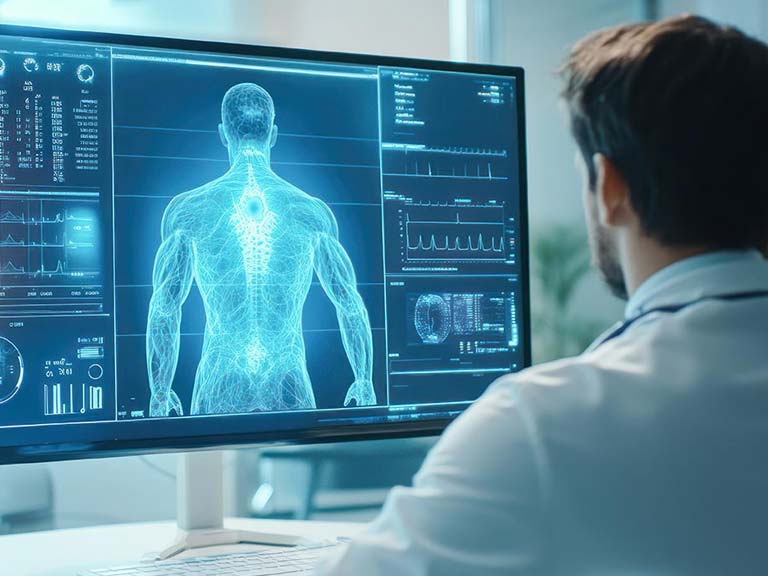
Strategies for Therapeutic Rehabilitation and Optimization of Neuromuscular Growth (STRONG) Laboratory
The primary focus of the UCF Strategies for Therapeutic Rehabilitation and Optimization of Neuromuscular Growth (STRONG) Laboratory is to identify exercise and/or rehabilitation strategies that elicit the most robust physiological responses among men and women with a particular emphasis on neuromuscular and cardiovascular function. The laboratory examines various interventions to determine the applicability of exercise, devices, and/or external stimuli to promote or maintain human function in asymptomatic and clinical populations. The laboratory is currently applying Blood Flow Restriction exercise as a rehabilitative strategy to help restore neuromuscular and muscle function among people with multiple sclerosis. The laboratory is also evaluating the utility of Blood Flow Restriction as a countermeasure to offset the effects of prolonged spaceflight on cardiovascular function.
Shaping Our Future: Advisory Board
Formed in 2022, the UCF Institute of Exercise Physiology and Rehabilitation Science's Inaugural Advisory Board consists of research, industry, and community experts. The mission of the IEPRS Advisory Board is to provide guidance, strategic direction, and advocacy to the Director, laboratory PIs, and university leaders. With over 100 years of experience, our Advisory Board is well positioned to support growth and shape the future of the UCF Institute of Exercise Physiology and Rehabilitation Science.
- Dr. Bret Goodpaster
- Dr. Scott Powers
- Dr. Suzette Pereira
- Dr. Joshua Kline
- Dr. Steven Balogh
- Mr. Christopher De Ruyter, US Army LTC
